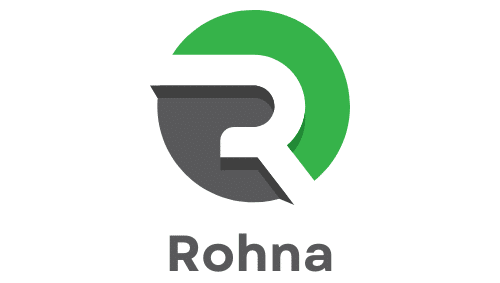The emerging advent of Artificial Intelligence (AI) in various sectors has not left journalism untouched. The utilization of technology to expedite and refine the process of news content creation has grown significantly. However, as with every technological leap, there are ethical implications involved. With AI systems like ChatGPT and machine learning algorithms becoming a part of newsrooms, it’s crucial to consider what ethical concerns they pose. As we delve into the topic, we will unpack the questions surrounding the use of technology, the role of human intervention, and the importance of maintaining ethical standards in journalism.
The Changing Landscape of Journalism
The field of journalism is experiencing a digital revolution as AI systems and algorithms are increasingly employed to generate content. Newsrooms are becoming more technologically advanced, with AI taking over certain tasks traditionally performed by humans. This section will examine how AI is reshaping the landscape of journalism, and the ethical questions that arise from this.
A découvrir également : How can MyImageGPT revolutionise illustrated book publishing ?
AI in journalism is not a novelty anymore. From automated content generation to data analysis and prediction of reader preferences, AI is offering a plethora of opportunities for the media industry. AI algorithms can churn out basic news pieces, particularly those involving statistics or financial reports, at a much faster rate than human journalists. Also, they assist in sifting through vast amounts of data to find patterns or insights that can lead to a compelling news story.
However, concerns are emerging regarding these AI-powered advancements. As the technology develops, so does the need for ethical guidelines to ensure fair and responsible use. There is a danger of AI systems being used to spread misinformation or ‘fake news’, especially if they are not properly monitored. Also, the reliance on AI for data analysis may lead to concerns about privacy breaches, as these systems often require access to sensitive information.
A lire également : Chatbots and marketing automation
The Role of Human Intervention
Even with AI systems playing a significant role in journalism, the importance of human intervention cannot be underestimated. This section will explore the reasons why human input is still crucial in journalism, and how it ties into the ethical concerns surrounding AI in this field.
While AI has the potential to augment journalism, it isn’t a replacement for human journalists. For instance, AI lacks the ability to conduct in-depth investigative reporting, interpret complex situations, or make ethical decisions. Human journalists play a critical role in maintaining the accuracy, fairness, and credibility of news content. They bring their judgement, creativity, and understanding of societal nuances to the table, which are aspects AI can’t replicate.
However, the proliferation of AI in journalism makes it harder to ascertain responsibility for errors or misinformation. If a news report generated by AI contains inaccuracies or biases, who bears the responsibility? The human journalist who overlooked it, the programmer of the AI, or the AI itself? This lack of clear accountability is a significant ethical concern, and reinforces the importance of human involvement in the AI-driven journalism process.
Ethical Guidelines for AI in Journalism
As the intertwining of AI and journalism deepens, the need for ethical guidelines becomes more apparent. This section will discuss what ethical guidelines should be in place to regulate the use of AI in journalism.
One of the primary ethical guidelines to follow is transparency. Newsrooms should be clear about when and how they are using AI to generate content. Audiences need to be informed about the nature of the content they consume, whether it’s been created by a human journalist or an AI system. Transparency is key to maintaining trust and credibility with the audience.
Another crucial area of focus should be combating bias. AI systems learn from the data they are trained on, which can often contain inherent biases. To prevent AI from perpetuating these biases in news content, there should be guidelines to ensure the data used to train these systems is as unbiased and representative as possible.
The Future of AI in Journalism
The rapid development of AI technology promises a future where its use in journalism will become even more prominent. This section will explore what this future might look like and the ethical issues that could arise.
AI has the potential to revolutionize the way news is produced and consumed. We could see AI systems becoming more sophisticated, capable of producing more complex news reports and offering personalized news feeds based on reader preferences. However, this future also raises ethical concerns. For example, personalization could lead to echo chambers, where readers are only exposed to news that aligns with their views.
Additionally, the increased use of AI could lead to job displacement within newsrooms. While AI can certainly augment the work journalists do, there is a risk that it could also replace them for certain tasks. This introduces ethical questions about job security and the potential devaluation of human journalists.
Overall, as we continue to navigate this digital revolution in journalism, it is imperative to conduct ongoing discussions about the ethical implications of AI in journalism. It is through these conversations that we can ensure the technology is used responsibly and in the best interests of both the journalism industry and the public.
The Implications of AI on Ethical Decision Making
The realm of ethical decision making in journalism is equally affected by the infusion of artificial intelligence. This section will delve into the potential implications and challenges AI presents in this crucial aspect of the news production process.
As AI becomes more involved in the content creation process, the ethical decision-making traditionally held by journalists is being tested. News pieces aren’t merely about presenting facts; they also involve the interpretation of information, which should be guided by a set of ethical principles. Journalists have the responsibility to ensure that news content is fair, accurate, and balanced. They are also expected to differentiate between substantiated facts and opinions, and to respect the privacy and dignity of individuals involved in the news stories.
In contrast, AI tools, while efficient, lack the human touch, intuition, and moral reasoning required in ethical decision making. They are programmed to follow set algorithms and can’t distinguish between ethical and unethical practices unless explicitly programmed to do so. This raises concerns about the potential misuse of artificial intelligence in newsroom activities. For instance, AI tools could be used to generate content that is biased, offensive, or invades someone’s privacy, particularly if the data they are trained on or the algorithms they are programmed to follow are flawed.
To navigate these challenges, strict ethical guidelines should be developed regarding the use of AI in newsrooms. These should include rules to ensure that AI-generated content is monitored and reviewed by human journalists before publication, and that AI tools are only used in a manner that upholds the ethical standards of journalism.
Conclusion: Balancing AI Advancement and Ethical Journalism
Artificial intelligence certainly holds vast potential for the news industry, but it’s crucial to balance this with the ethical responsibilities that come with news reporting. This concluding section will summarise the main ethical concerns surrounding AI in journalism and emphasise the importance of addressing them.
The key ethical concerns identified include the potential for bias in AI-generated content, the risk of privacy breaches, the lack of accountability for errors or misinformation, and the possible devaluation of human journalists. Addressing these issues is not just the responsibility of news organizations but also of AI developers and third-party organizations.
To maintain public trust, media organisations must be transparent about their use of AI and take responsibility for the content it produces. It is also crucial to ensure that AI is not used as a means to spread fake news or infringe on individual’s privacy.
Moreover, ethics in AI programming needs to be emphasized. Developers should strive to create machine learning systems that minimize bias and respect ethical norms, and organizations ought to conduct regular audits of their AI systems to ensure they conform to these standards.
In conclusion, while the inclusion of AI in journalism presents numerous benefits, it also necessitates an enhanced focus on ethical considerations. As we embrace this AI-driven future, it is crucial that we do not compromise on the ethical standards that underpin journalism. Maintaining the delicate balance between technological advancement and ethical journalism will be the key to harnessing the full potential of AI while preserving the integrity of the news industry.











